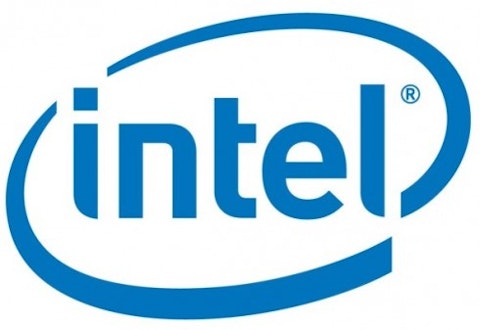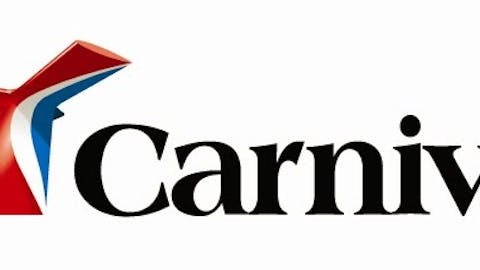Platinum Management is the hedge fund run by Mark Nordlicht, and is part of the $1 billion Platinum Partners fund. Platinum manages a rather small, $67 million equity portfolio, but it’s still worth tracking his top picks. Our research has shown that the smart money’s best stock holdings can generate double-digit outperformance on a year-in-year-out basis; learn how to capitalize on this phenomenon.
Securities in the fund are concentrated in the technology and healthcare sector, and although Mr. Nordlicht’s prior experience is in commodities, there are very few positions in the top 10 in this sector. Let’s look at the top five positions in the Platinum Management portfolio.
The big bio kahuna
At number one with over 8 million shares is Navidea Biopharmaceuticals Inc (NYSEAMEX:NAVB). The stock was added to the fund during the first quarter of 2012 and since then, the position has been increased by 53%. Navidea’s Lymphoseek, which is used to locate metastic lesions in lymph nodes, was just recently approved by the FDA, and is the first new drug for lymph node mapping to be approved in more than 30 years.
But despite what is clearly bullish news for the stock, shares of Navidea have been languishing near their 52-week low of $2.14. Part of the problem is the very weak financial picture for the company in which R&D expenses coupled with a near-doubling of administrative expenses has seen the company’s bottom line deteriorate to -$29 million from +$5.6 million from last year.
Another issue is that the stock is a favorite among short-sellers, which has kept the price artificially low. Navidea’s short interest as a percentage of its float rests at 20.8%. We suspect that once Lymphoseek finally comes to market, Navidea’s stock price should recover nicely.
The best of the rest
Number two of the top five is Intel Corporation (NASDAQ:INTC), a new addition to the fund. Intel recently reported Q1 earnings and there was very little good news in the report. Profits were down 25%, revenue was down 2.5%, and earnings were down 24% to $0.40. So why didn’t the stock price fall apart? Factoring in dismal PC sales this past year, Intel actually didn’t do too badly. The company has been making big investments in the chips that are used for tablets and mobile devices and many analysts expect that this investment, coupled with Intel Corporation (NASDAQ:INTC)’s lead in manufacturing technology, which produces some of the worlds cheapest and most energy efficient transistors, will ultimately pay off.
Third on the list and another new addition is Royal Caribbean Cruises Ltd. (NYSE:RCL). About the best thing one can say about Royal Caribbean is that it’s not Carnival Cruises. While its competitor grapples with one mishap after another, Royal Caribbean’s stock price has been getting somewhat bloodied in sympathy, albeit not nearly as bad as Carnival Cruises; Royal Caribbean is down 5% on the year while Carnival Cruises is off 10%.
Clearly the cruise industry is having a hard time luring travelers who only hear about capsized ships, electrical problems and flooded toilets. And although Royal Caribbean is priced cheaper relative to its book value than Carnival, its trailing P/E ratio is 416x versus Carnival’s 17.6x. The industry average, by comparison, is 23x. This is at least partially explained by the fact that Royal Caribbean Cruises Ltd. (NYSE:RCL)’s net income for the most recent quarter shrunk 97%. From an investment standpoint, there won’t be smooth sailing in the cruise liner industry this year—pun intended.
At number four is Verint Systems Inc. (NASDAQ:VRNT), which provides actionable intelligence solutions and services for security intelligence and workforce optimization. The company recently reported better than expected Q4 earnings and had its price target of $35.00 raised to $40.00 by Deutsche Bank.
The stock’s price is up 8% on the year, but its metrics, however, are less encouraging. Verint’s price-to-book ratio of 7.7x is nearly twice the industry average of 4x, and it is carrying a very heavy debt load. Competitor SAP AG may also be priced expensively at 5 times its book value, but revenue growth is much stronger than Verint Systems Inc. (NASDAQ:VRNT), and SAP carries no debt.
Rounding out the top five, we have Echo Therapeutics Inc (NASDAQ:ECTE). With 2.1 million shares, Platinum is the largest holder in Echo of the 450-plus hedge funds we track, having added the stock to its 13F portfolio during the third quarter of 2011. In March, the company was granted a patent for its Prelude Skinprep System, a device and method for prepping the skin to allow for analyte extraction or drug delivery.
The news drove the stock price 13% higher at one point, but shares of Echo are still down 40% on the year. One reason for this declination may be that Q4 revenue for the company is down 98% year-over-year, while R&D costs have skyrocketed by 128% comparatively.
Another issue may be much simpler. Due to the fact that Echo’s share price has traded below the $1.00 mark for 30 consecutive business days, it risks being de-listed from the NASDAQ. This isn’t a particular bullish signal for any investor, no matter his or her philosophy.
Final thoughts
Platinum Management clearly faces some very serious challenges given the outlook for the top five securities in its 13F portfolio, which represents a little over half of the entire balance, according to its latest filing with the SEC. With the exception of Intel Corporation (NASDAQ:INTC) and Navidea, this top five is not likely to put in a strong performance, at least for the next quarter. We’d still recommend watching Platinum though; click here to do so.
Disclosure: none



